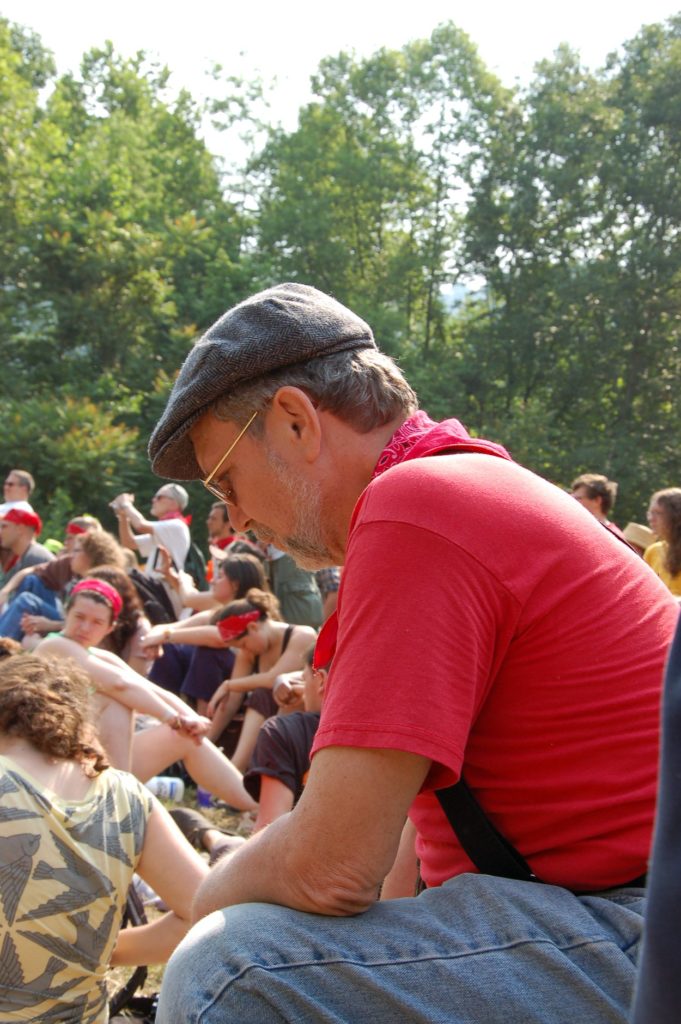We lost a beloved comrade, Jim Branson. We share with you four different remembrances that illuminate different parts of Jim’s remarkable life. The first is a post from Jim’s partner, Anne Lewis and the second is from his long-time comrade Thandabantu Iverson. The third and fourth are from younger comrades who learned from and were inspired by Jim: Salma Mirza and Jared Story.
Jim’s partner, Anne Lewis
My partner Jim Branson died early on August 16th from Lewy Body Dementia. He was a lifelong socialist fighter and a trade unionist. Jim was an open member of the Georgia Communist League, the October League, the CP Marxist Leninist, and most recently DSA and the Freedom Road Socialist Organization (now Liberation Road). He went to China as part of a workers delegation in the eighties. They ate feasts of sea cucumber and talked about the mines.
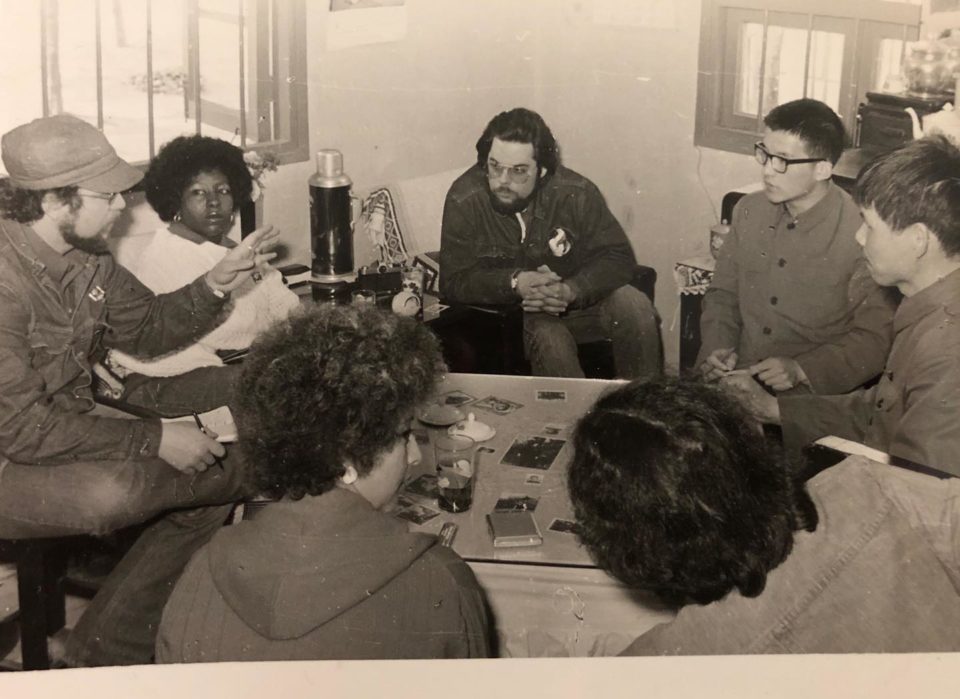
He worked in slaughterhouses and steel mills; underground coal mines and as a grassroots, cultural, and union organizer in West Virginia, Kentucky, and Texas. Always physically courageous and an organic intellectual, he committed body and mind to the Mead Paper Strike, the Brookside Miners Strike, the Massey Strike, the Pittston Coal Strike, the Southern Organizing Committee’s work on environmental justice, the campaign for single payer health care, the March to Save Blair Mountain, and union organizing drives in West Virginia, Kentucky, and Texas.
Jim wrote poems and pamphlets. His last job was with the Texas State Employees Union TSEU-CWA 6186.
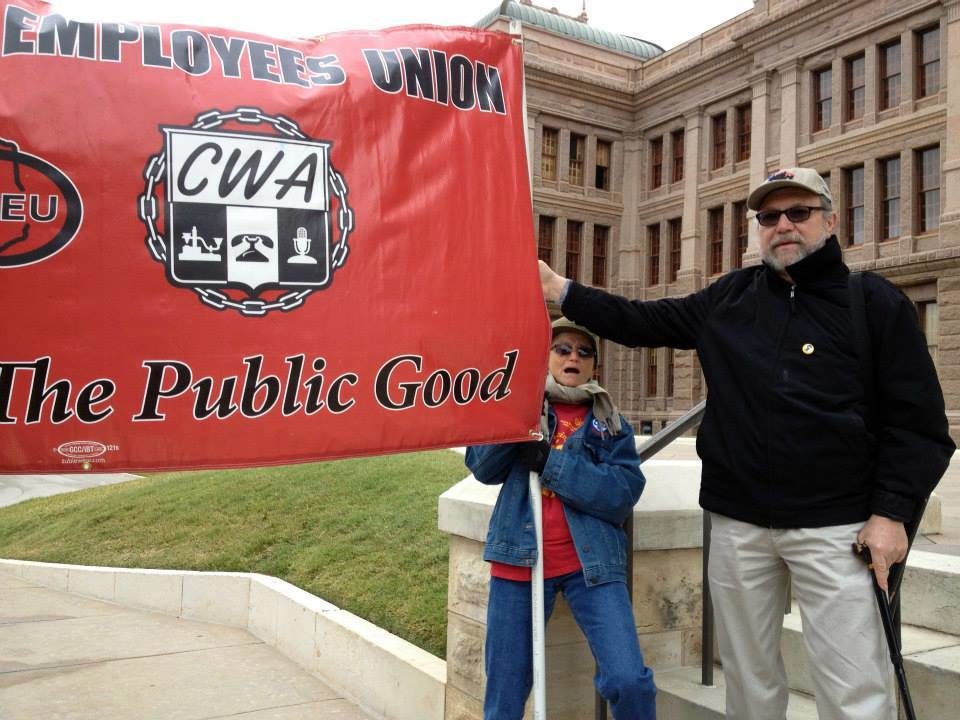
He learned from Jack O’Dell, Jim Garland, Anne Braden, and Don West. He disliked bosses and authority figures. He stayed in jobs long enough to struggle with them and never long enough to move ahead. In a more just society he would have been a leader. In this one he was proud to be a foot soldier.
Jim loved his personal family — Josh and Beverly, Grant and Clarissa; Paul, Amber, Ely, and Noah; George; Ruby, M, and Meg; brothers Charlie and Bill and their families; uncles Mike and Jeff; deceased wife Susanne and her family; Steve and Terry who truly are family; and all his comrades and union sisters and brothers.
We thank all those who cared for Jim when his mind failed but his body refused to die, especially M and Matt and the residents and direct care workers at Legacy Oaks.
Jim believed that every person who resisted, who organized, who helped build a new and better world was his sister and brother. He would invite all who remember him to join the struggle. We will celebrate his life in Austin this September and in the mountains of Kentucky probably in October. All are welcome.
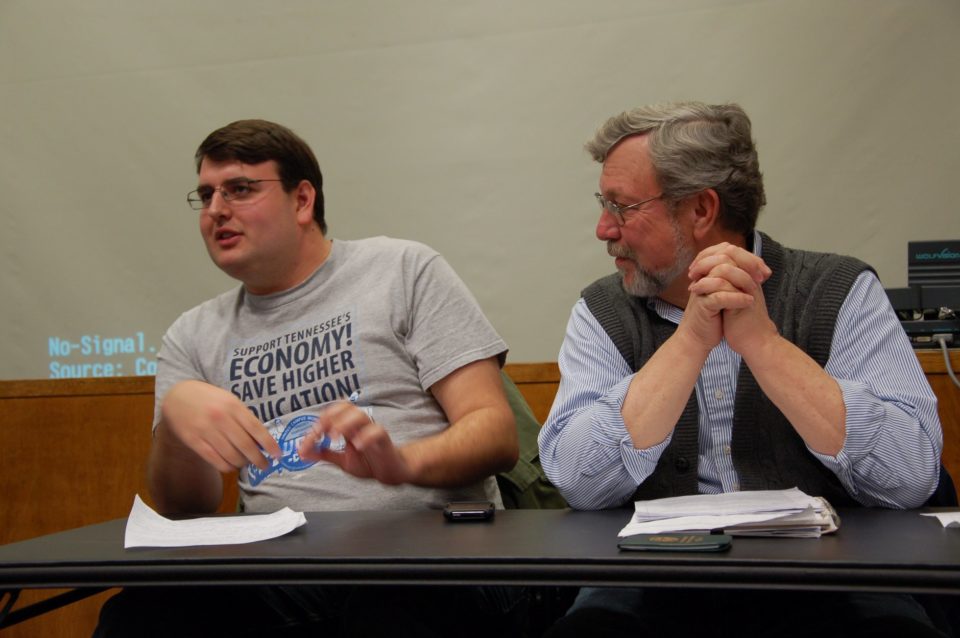
We celebrate this moment in history that recognizes that Jim’s only defeat was his death, and applaud all who read this. Jim Branson ¡Presente!
Thandabantu Iverson:
The oppressed, exploited and resistant peoples of the United States have lost a remarkable working-class activist and intellectual, James Branson. I knew Jim for over twenty years, and it was one the abiding honors of my life to work with him in political organizations as well as the coal mines of West Virginia. As an Irish American of the working class, Jim was one of the most sincere, thoughtful, bold, and fearless embodiments of anti-racist humanity I have ever known. In this despicable and dispiriting time of white supremacy, misogyny, and liberal political reaction, we will do well to pause and reflect on a few aspects of Jim’s life.
During the 1970s I learned about a fearless worker named Jim Branson when I was working in the Southern Conference Education Fund. This political organization had actually been a fundraising arm of the Southern Conference on Human Welfare, a crucial organization begun during the 1930s by Blacks and Whites dedicated to bringing together “Black and White Toilers of the South” to help dismantle segregation across the South. Largely because of the virulent campaigns of McCarthyism, radically-minded members of that organization decided that it was important to separate the Education Fund from the more visible and aggressively-targeted SCHW. Anti-racist leaders like Anne Braden and Carl Braden, who had disrupted the racist normalcy of Louisville, Ky. by selling their home to a Black family, continued in SCEF the work of the SCHW to inspire and join forces with new generations of social change activists. I met Jim when I had become a fledgling writer for the Southern Struggle, the SCEF newspaper.
SCEF was supporting Jim at that time because he was under indictment for having defended other coal miners and their families who had been threatened by the goons working to destroy trade unionism and workers¹ resistance in Harlan County, Ky. Jim believed, quite simply, that workers have a human right to self-defense, as well as the human right to build unions to improve our lives and livelihoods. He boldly armed himself, and exercised those rights. We were following his legal case at the time, as we were trying to clarify the details of Harlan County conditions and resistance for a broader Southern audience. Jim was facing serious jail time; yet when I met him, I was struck by his consciousness and composure, as well as his humility. He had a quiet, courageous demeanor emblematic of many workers in the mines. Jim’s attitude toward bosses and goons said it all: “If you feel froggy, leap.”
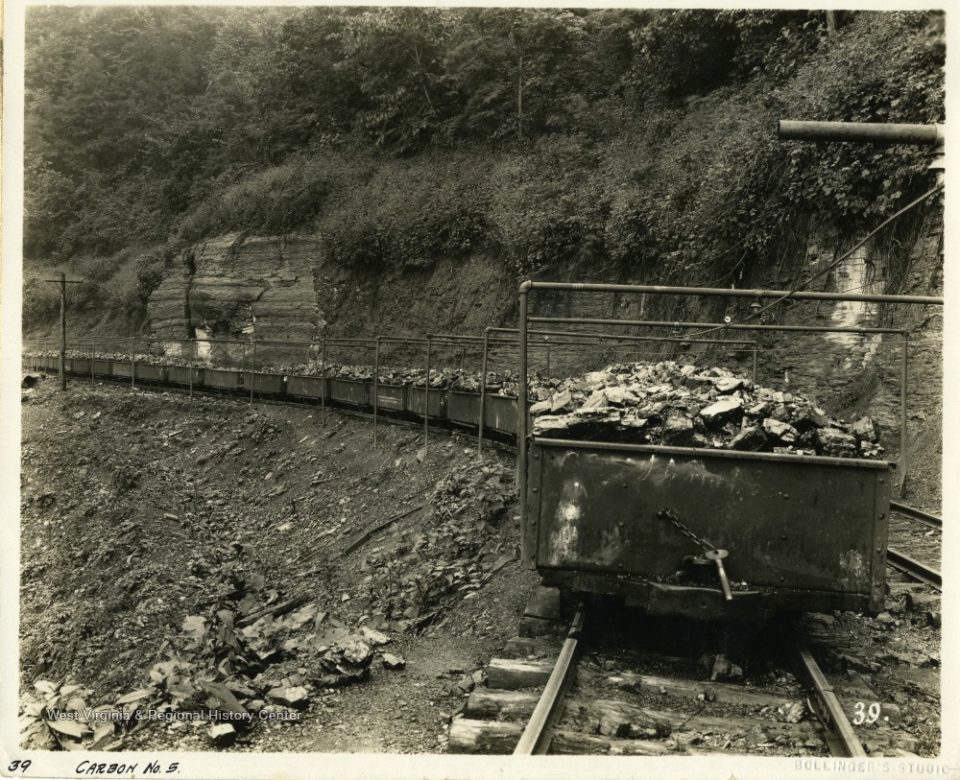
A couple years later, after Jim¹s case had been won and I had moved to Charleston, West Virginia, I took a job at Carbon Fuel Mining Co., where Jim had been working for a while. Since we already knew each other, Jim wasted no time in taking me under his wing and giving me a primer on how to survive the work and the racism and anti-worker hostilities in the mines. We didn’t yet know each other well; but Jim told we about the conditions I would encounter and the challenges I would meet especially as a politically-conscious African American new to the opportunism and backwardness that stifle workers every day across Appalachia. He told me who the most deadly bosses were, always distinguishing between the White workers who were sold out to the company from the White workers who had not yet awakened fully to the need for working-class unity and struggle against capitalist greed. I have no doubt that if Jim hadn’t schooled me before I entered the mine, I would not have survived, and I certainly wouldn’t be writing this brief remembrance of my friend and comrade.
To me, Jim Branson will always stand as one of the most clear-sighted and humane anti-racists who ever worked to build principled unity between workers of different racial-ethnic groupings. Jim was not only a worker, but also an incisive intellectual deeply passionate about saving and celebrating the rich culture of workers in the Appalachian regions. Long before I met him, he had dedicated himself wholly to the organization and liberation of members of the working class across this country and the world. Jim was a wonderful husband, an amazing father, and the kind of brother who’d be standing next to you facing a group of Klansmen on a dark Southern road. I knew him as he survived the tragic losses of two wonderful women when death ended their marriages. Anne Lewis, his wife at the time of his passing, is also a brilliant working-class organizer and educator, who uses film to tell the stories and win the minds of working people to the ways we can make and live our lives better. We will have to keep going without Jim, but the lessons of his humble visionary activism will shed light as we press on through these dark times. Comrade James Branson, ¡Present!
Salma Mirza
Jim Branson was a true working class hero, long time trade unionist and socialist/ communist. He was my mentor and friend, who brought me into Liberation Road as my district organizer and mentored me when I was volunteering for the Texas State Employees Union. He had an amazing life, which his equally amazing partner Anne Lewis.
I haven’t known anyone quite like him. He had an incredibly impressive dedication and commitment to the movement and wealth of organizing experience, and yet never let his experiences make him bitter or abrasive. He was so warm, welcoming, humble, kind and still so open to learning new things well into his later life. He and his family supported me during difficult times in my life.
He and Anne issued a blanket invitation to me during one difficult time that I could come over to their house whenever I needed to. I remember sitting companionably with him in silence, watching a basketball game, when I took him up on that offer. That experience of welcome and support is as meaningful to me as all of the things I learned from him about organizing, politics, and socialism.
I remember going with him to the capitol in Austin during the reproductive rights protests. He couldn’t stand or walk for long, but he brought his own lawn chair, came with me to the capitol, and parked himself in the middle of the protest. He taught me how to be a disabled and sick person in the movement. He was always on the right side of history.
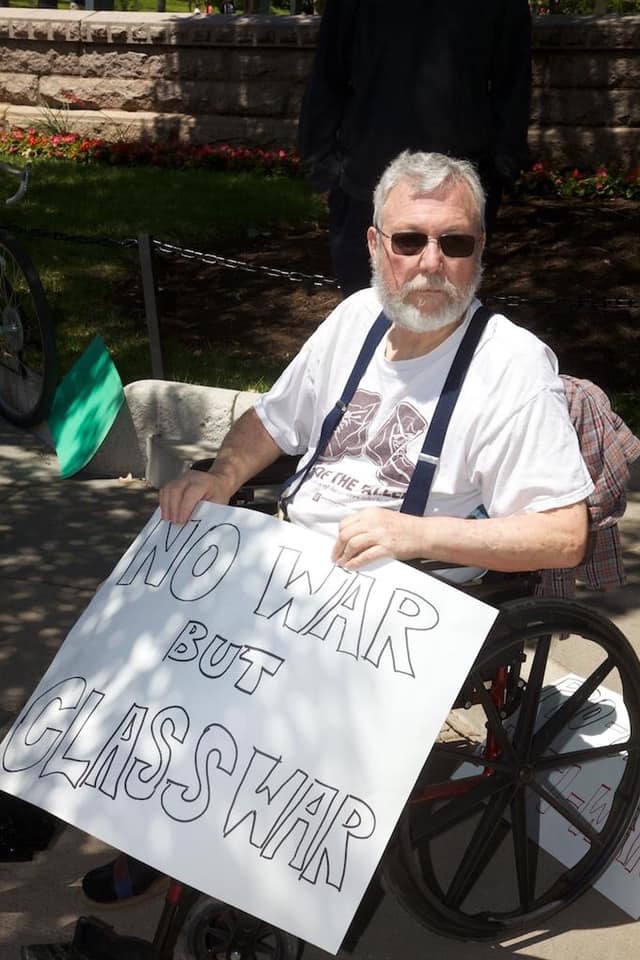
When I started studying communications and digital strategy, I was even more impressed with how ably he could cut to the heart of an issue with a few direct, easy to understand words. He was an amazing communicator and taught me the connection between strategic communications, digital organizing, and offline organizing just through his example even though he had no formal training in comms or digital.
He demonstrated white working class solidarity with people of color against white supremacy through his life more than any book or theory could hope to articulate.
I hope to live my life in a way that honors his memory. Jim Branson, ¡Presente!
Jared Story:
Last night I learned that one of my greatly respected elder comrades, Jim Branson, passed. I had a lot of feelings of guilt, shame, and alienation from the culture I grew up in as I became fully conscious of the system and history of white supremacy. Jim was one of the people whose example and comradeship pointed me to the legacy and continuity of white Southerners, and Appalachians specifically, who fought the bosses and the Klan. He was born at the base of Blair Mountain where thousands of miners of many nationalities joined together to wage armed struggle against the coal companies and their hired thugs. In that tradition of his birthplace, Jim lived his life organizing his fellow workers to join hands and struggle together for a better workplace and a better world. Along with the names of John Brown, Anne Braden, Bob Zellner, and many others, Jim Branson’s name should be in the hearts and minds of white people struggling against capitalism and white supremacy. Jim Branson, ¡Presente!
